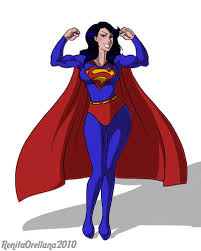
For example, when my son got hit in the mouth with a baseball at the age of fourteen, I was helpless to stop it. He was playing first base, and the runner bumped him so that he shifted his stance while waiting for the ball to come to him. That altered position was just enough for him to miss the catch. The ball slammed into his face. He went down like a rock.
Luckily my husband was also there. We raced him to the dentist, who began shifting all the loose teeth back into place. We were later told that his braces were what kept them from being knocked out. And the whole time I was a blubbering mess. All I could see was my baby (who topped me by about four inches already) in excruciating pain. I knew I had to do something, anything. Through my tears (yes, I’m a crier), I pulled myself together enough to call around until the emergency dentist met us at his office. Our quick action, and the braces, are what saved his teeth. Nearly ten years later and he still hasn’t had any repercussions.
Another helpless moment was when it came time to put each of our dogs down. Our first dog, Princess, lived to be thirteen. She developed arthritis, and that type of medication wasn’t readily available for dogs then. Unable to watch her in pain, I cried buckets when I had to say goodbye to her. I felt so helpless, and unable to make her whole again. I couldn’t do anything but tell her I loved her and say goodbye. The same went for our male Sheltie, when he developed Lymphoma at twelve years of age. It is sad that animals have such short lifetimes, yet they give us triple the amount of love.
This same feeling of helplessness can transfer into fiction, where it perhaps can illustrate to readers more clearly how it feels to be in a hopeless situation. How often have we read a scene of such emotional desolation that we were actually relieved not to be in that book? Reading about someone else’s powerlessness can aid us in putting our problems in perspective, or it can give us an inkling on how to/how not to react.
In Prisoner of Love, my debut romance novel, the heroine is kidnapped by Jake Dalton. He forces her by knifepoint to take him where he wants to go, and she has no way of escaping, even though she makes attempts to do so. She’s paralyzed by fear, yet she makes at least three escape attempts before subsiding. For the moment. She doesn’t accept her fate.
Throughout the book, her mind is always working, accepting or rejecting different avenues or actions. She may not like the results of her decisions, she may cry (she’s like me, after all!), but she refuses to be helpless. It’s a trait to which we can all relate, and which I tried to illustrate: there’s a way out of every predicament, if only we think on it hard enough.
I hate being helpless, boxed into a corner, where every decision seems to lead to a bad outcome. But continuing to find solutions makes a person (and a fiction character) strong. Not accepting one’s fate blindly is the only way people can maintain their independence, even against insurmountable odds.
 RSS Feed
RSS Feed
